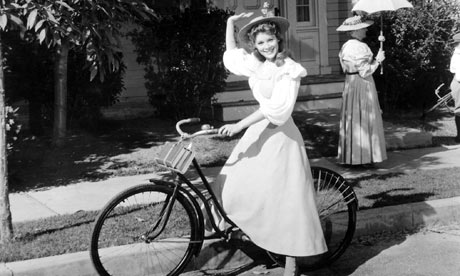
Is academia still a man’s world?
RACHEL HUNTER argues that the battle for academic equality is far from won.

“Girls aim to please, boys aim to succeed”
Midway through my first year at Cambridge my school organised an ‘ex-pupils at Oxbridge’ dinner and I found myself next to a young politics teacher, who I’d never really encountered at school. ‘In my experience, girls aim to please, boys to succeed’, she argued, a point of view that I was shocked to hear coming from an intelligent woman.
However, it wasn’t until I began to interview a number of female academics in preparation for my role as co-producer of Blue Stockings, by Jessica Swale, that I began to think over the antiquated and apparently sexist comments like this I had heard, and where this argument had stemmed from.
In 2010, my matriculation year, 256 men were accepted to study Engineering, and 80 women. In English, 72 men and 132 women were accepted. Dr. Athene Donald, soon to be master of Churchill College, and a physicist, refutes the notion that men or women are genetically ‘hard-wired‘ to be skilled in certain subjects: ‘a lot of our prejudices are completely invisible to us. The woman still will be rated lower, by men and women. The presumption is that women don’t do science’. Dr. Donald argues that this is a matter of feminine confidence, and makes an interesting point about her own experience of matriculating in 1971: ‘My sister and I were brought up by my mother, and I went to an all-girls school. I didn’t realise that studying physics at Cambridge was an ‘odd’ thing for a woman to do until I visited Harrow, where a family friend was master, and all the young boys recoiled’.
The stereotype of the public school boy, brought up in a male-only environment and seeing girls simply as ‘datable’ objects is of course nowadays utterly false. Yet many of the drinking societies in Cambridge wear regulation blazers like members of a private gentlemen’s club in the ‘pre-women’ era at Cambridge, going on swaps where the ‘girls’ meet the ‘boys’, evincing a desire to hold onto traditions that enforce the separation between women and men.
Dr. Hero Chalmers recalls the patronising tone of certain males in her time as an undergraduate at Oxford in 1983-86, but also comments on the relative open minds of those whom she befriended: ‘we lived somewhat communally, in a mixed gendered house, and it was agreed that tampons would be purchased with the house money’. I struggle to envisage a scenario where this would be the case nowadays, having lived communally myself, as the taxing of tampons as ‘luxury’ items appear to have led to a mentality amongst my male friends that they are a feminine ‘indulgence’, like face cream or mascara.
“Girls are quicker to be apologetic for their progress”
I have begun recently to be made aware by supervisors of disparities between male and female confidence levels in their academic progress. When a young woman hands in an essay with a mutter of ‘sorry, it’s not one of my best‘, many of my female supervisors express their frustration that so many more female students than male would apologise for their academic progress.
With this in mind, I’ve noticed that men are more inclined to speak out in my seminars than women – in a recent class I attended men were in the minority, with only six of them present, yet at least fifteen women didn’t speak at all, and every man participated. I discussed this with female friends afterwards, and we realised we were not surprised by this, and questioned whether even we ourselves had been more judgemental of the views expressed by other female students. I can only guess the reasons for this, but it certainly comes down to a disparity in confidence, perhaps a desire not to say anything that might be construed ‘arrogant’ or ‘abrasive’. I feel sure that this is precisely what the Blue Stockings of Girton fought against, and it is not a fight that is over yet.
A panel discussion, Women in Academia, will take place at the ADC at 6pm on Thursday 30th.









































